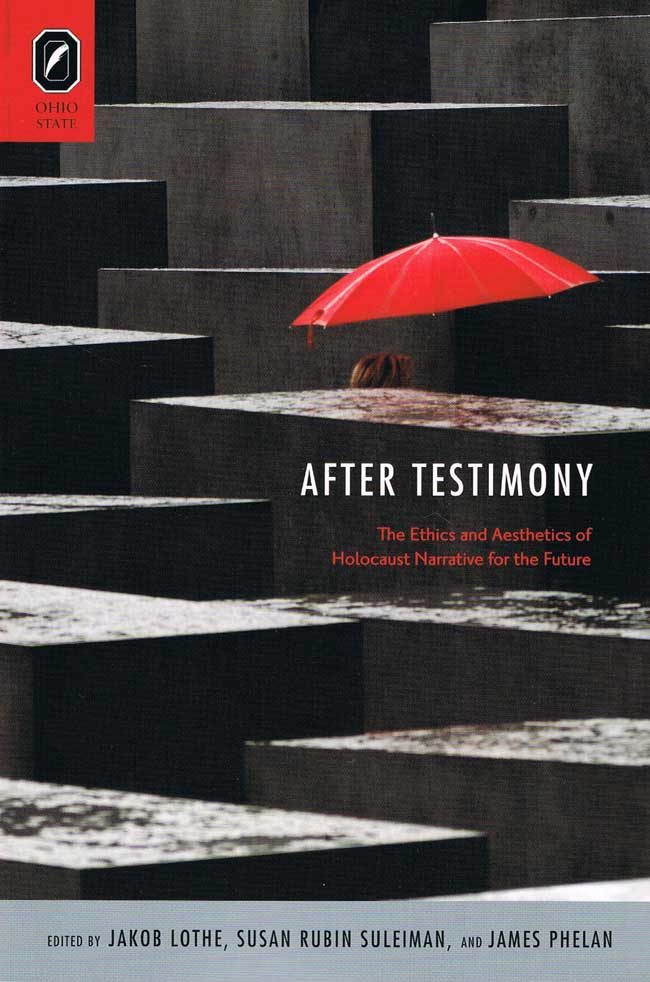|
A Choice 2012 Outstanding Academic Title After TestimonyThe Ethics and Aesthetics of Holocaust Narrative for the FutureEdited by Jakob Lothe, Susan Rubin Suleiman, and James PhelanTheory and Interpretation of Narrative |  2/02/2012 Literary Criticism/European/German 380 pp. 6x9  $38.95 paper 978-0-8142-5182-9 Add paper to shopping cart Shopping Cart Instructions Review/Change Shopping Cart & Check-out | |||
|
Explore More United States Holocaust Memorial Museum Denkmal für die ermordeten Juden Europas The Center for Studies of Holocaust and Religious Minorities Crises of Memory and the Second World War, by Susan Rubin Suleiman |
“After Testimony is more than the sum of its parts. It is, as the editors claim, a document for the future, which takes the subject of the Holocaust out of the past, into the present, where it can continue to grow and become an organic part of the still untold stories of the Nazi genocide and its legacy.” —Partial Answers “After Testimony is the first larger collective project that specifically and self-consciously employs narrative theory in its analysis of texts about the Holocaust, an undertaking that, in my opinion, is woefully overdue, especially given the ubiquity of narratological approaches in literary and cultural studies in general. For that reason alone, I think this volume will be of immense importance to the field of Holocaust Studies.” —Erin McGlothlin, associate professor of German and Jewish Studies, Washington University in St. Louis After Testimony: The Ethics and Aesthetics of Holocaust Narrative for the Future collects sixteen essays written with the awareness that we are on the verge of a historical shift in our relation to the Third Reich’s programmatic genocide. Soon there will be no living survivors of the Holocaust, and therefore people not directly connected to the event must assume the full responsibility for representing it. The contributors believe that this shift has broad consequences for narratives of the Holocaust. By virtue of being “after” the accounts of survivors, storytellers must find their own ways of coming to terms with the historical reality that those testimonies have tried to communicate. The ethical and aesthetic dimensions of these stories will be especially crucial to their effectiveness. Guided by these principles and employing the tools of contemporary narrative theory, the contributors analyze a wide range of Holocaust narratives—fictional and nonfictional, literary and filmic—for the dual purpose of offering fresh insights and identifying issues and strategies likely to be significant in the future. In addition to the editors, the contributors are Daphna Erdinast-Vulcan, Sidra DeKoven Ezrahi, Anniken Greve, Jeremy Hawthorn, Marianne Hirsch, Irene Kacandes, Phillipe Mesnard, J. Hillis Miller, Michael Rothberg, Beatrice Sandberg, Anette H. Storeide, Anne Thelle, and Janet Walker. Jakob Lothe is professor of English literature, University of Oslo. Susan Rubin Suleiman
is the C. Douglas Dillon Professor of the Civilization of France and professor of comparative literature at Harvard University.
James Phelan is Distinguished University Professor of English at The Ohio State University. | |||

